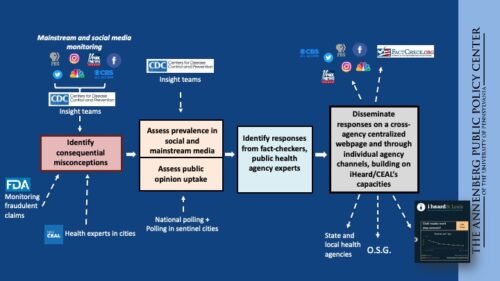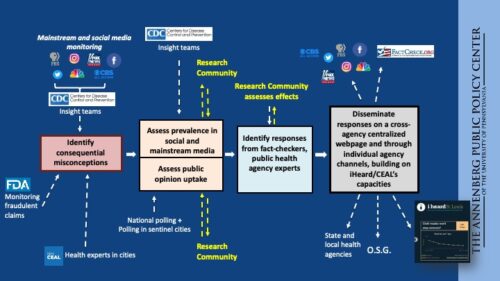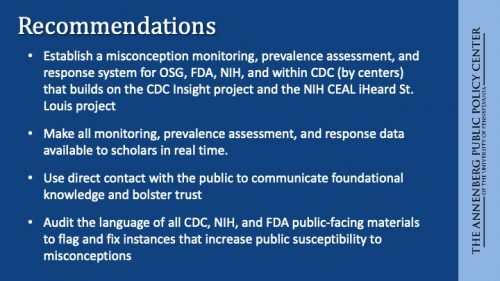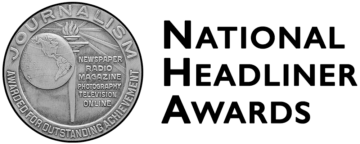Kathleen Hall Jamieson, director of the Annenberg Public Policy Center, addressed the President’s Council of Advisors on Science and Technology (PCAST) and offered ways that federal health and science agencies could combat misinformation and improve communication with the public.
Jamieson, who is also the Elizabeth Ware Packard Professor of Communication at Penn’s Annenberg School for Communication, was 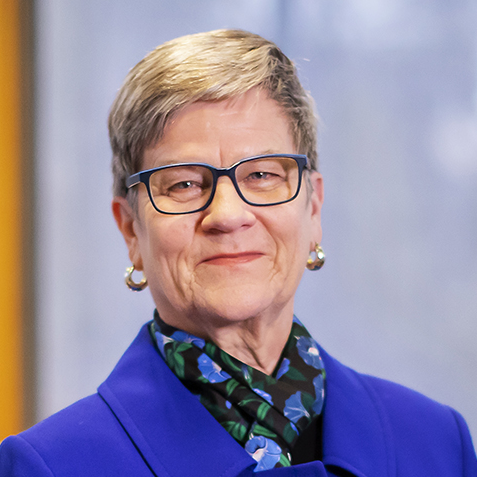 one of four scholars to address the council on March 24, 2022, during a 90-minute session focused on improving science communication.
one of four scholars to address the council on March 24, 2022, during a 90-minute session focused on improving science communication.
In her presentation, Jamieson offered four proposals, beginning with a system to coordinate responses across four federal offices and agencies that deal with misinformation and the pandemic response:
- Create a monitoring, prevalence assessment, and response system for the Office of the Surgeon General (OSG), the Food and Drug Administration (FDA), the National Institutes of Health (NIH), and the Centers for Disease Control and Prevention (CDC), building on existing efforts such as the CDC’s COVID-19 State of Vaccine Confidence Insights Reports.
- Make all monitoring, prevalence assessment, and response data available to scholars in real time — which would accelerate research on ways to increase public understanding of foundational health concepts and reduce public susceptibility to consequential misconceptions.
- Use direct contact with the public to communicate foundational knowledge and bolster trust — modeled after materials like some of those prepared by the CDC that are clear, direct, and easily understandable – and seize opportunities to put them before the public, for example, in the 15-minute post-vaccination observation period and in government-provided at-home test kits. Jamieson noted that a study she co-authored that was published in PNAS in December found that foundational knowledge about vaccination and trust in science played a greater role in shifting unvaccinated people to be vaccinated against Covid-19 than beliefs about Covid-specific factors.
- Audit the language of all CDC, NIH, and FDA public-facing materials to flag and fix instances that increase public susceptibility to misconceptions. For instance, the government’s Vaccine Adverse Event Reporting System, or VAERS, to which health-care providers and the public report possible adverse effects, contains raw, unconfirmed data, and has been the focus on false claims about vaccines. The name of the system falsely implies that reported events are necessarily vaccination-caused, argued Jamieson, who proposed changing the name.
The PCAST meeting, moderated by PCAST co-chair and former NIH director Francis Collins, also featured presentations from Consuelo Wilkins of Vanderbilt University, Arthur (Skip) Lupia of the University of Michigan, and Jessica Hullman of Northwestern University.
Watch Jamieson’s presentation on YouTube below:
